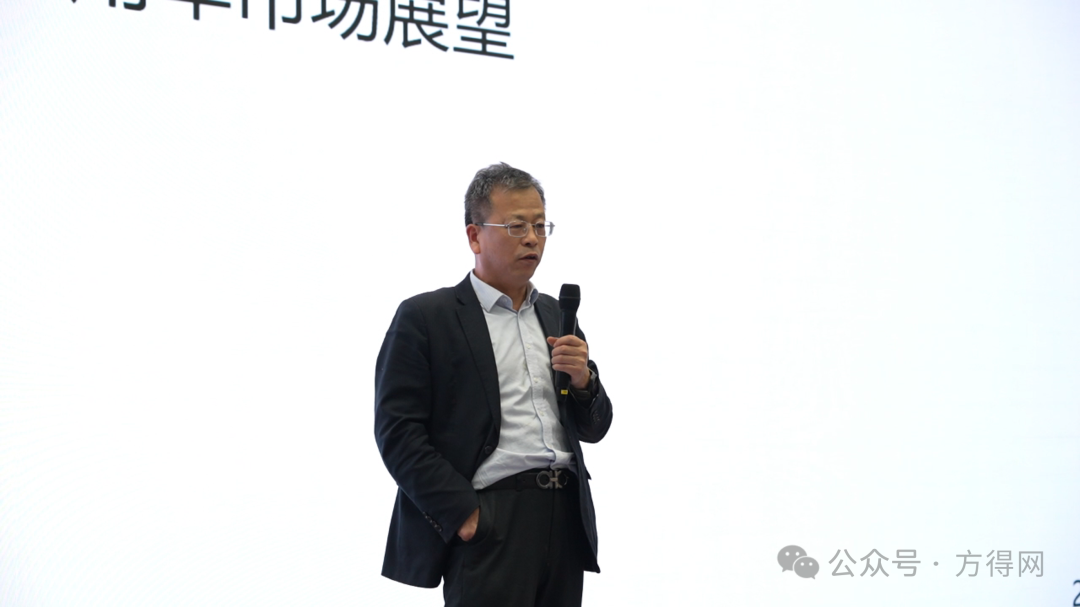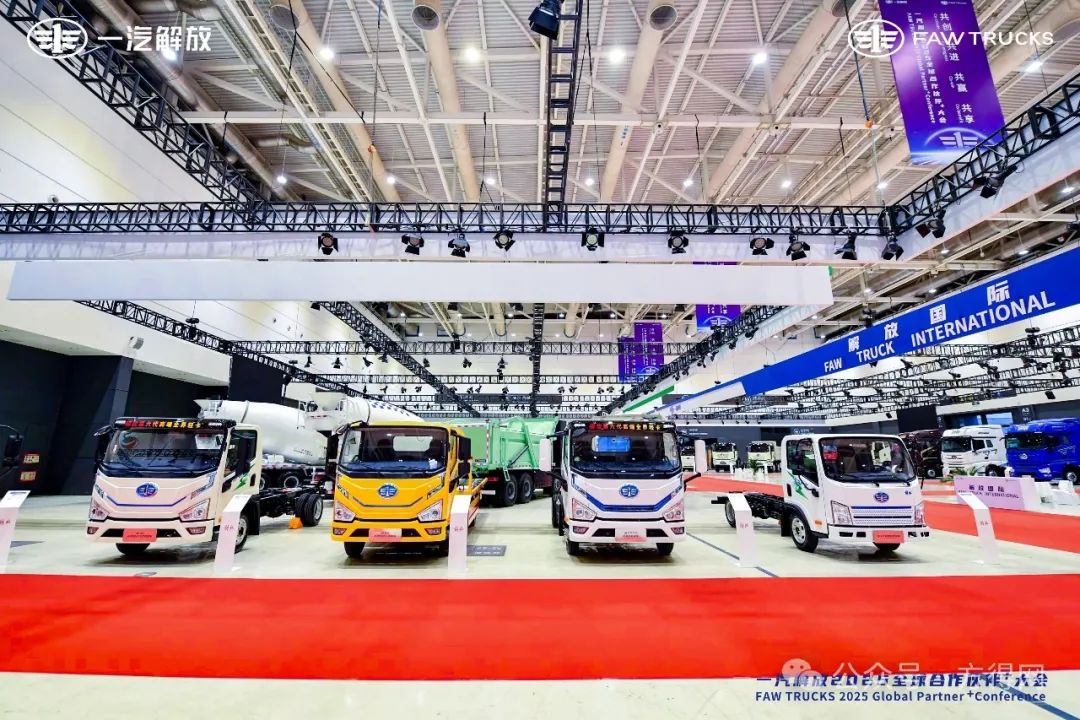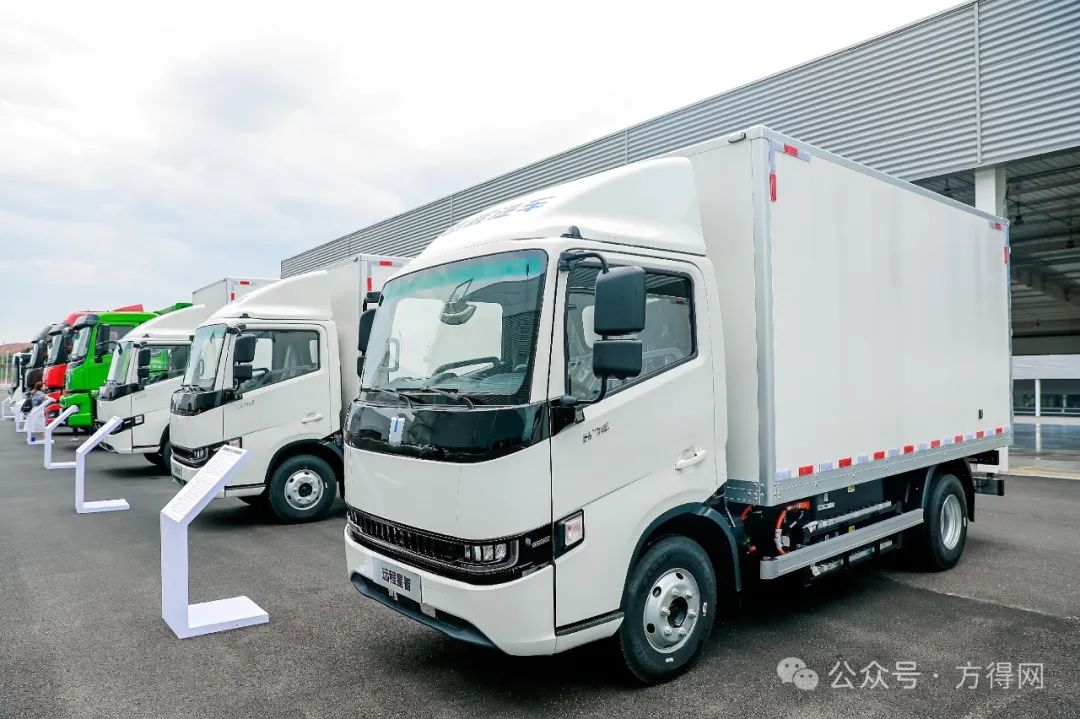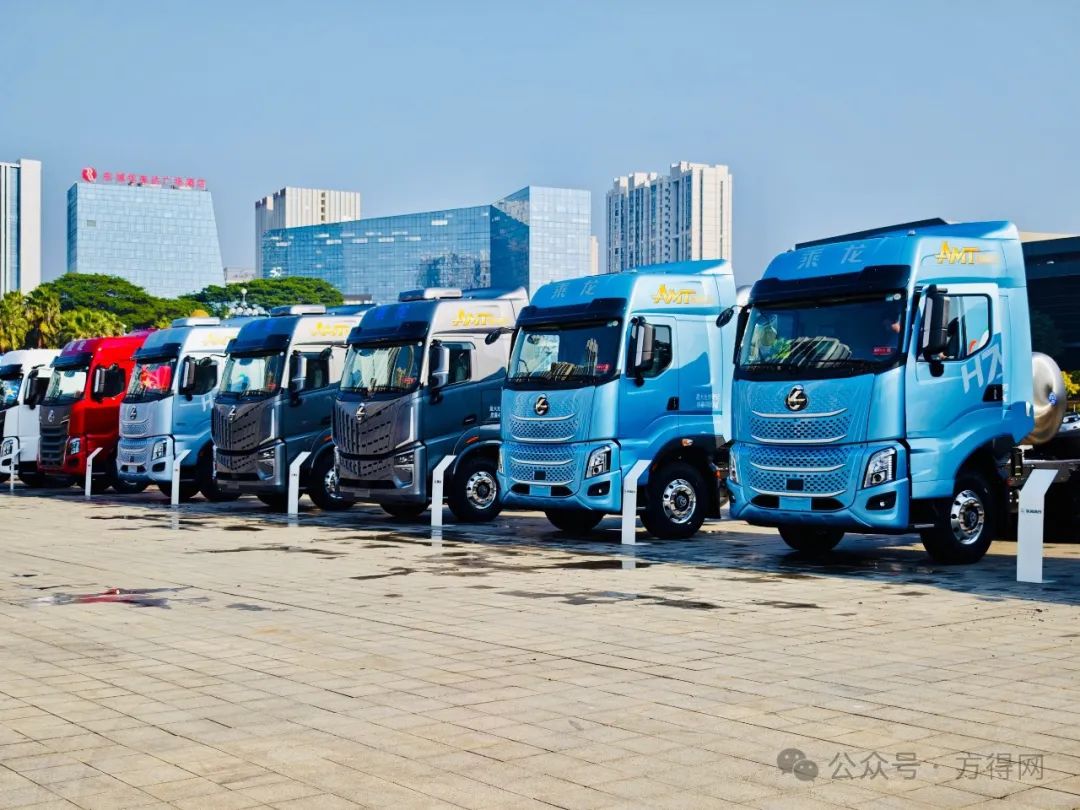Industry News | Cui Dongshu: Commercial vehicle exports cannot rely on electric vehicles, and fuel vehicles are still the mainstay!
Cui Dongshu sounded the alarm for the industry: In the field of commercial vehicle exports, excessive reliance on electric vehicles may be a "dangerous gamble".

On February 19th, at the "China Light Commercial Vehicle Power Evolution Forum", Cui Dongshu, Secretary General of the China Association of Automobile Manufacturers, gave a speech on the path of China's commercial vehicle power technology and export strategy. He pointed out that the core competitiveness of China's commercial vehicle exports currently lies in fuel vehicles, rather than new energy vehicles.
Cui Dongshu emphasized that the Chinese commercial vehicle industry needs to balance the path of oil and electricity technology, avoid a "one size fits all" policy weakening the advantages of the fuel vehicle industry chain, and thus miss global market opportunities.
Fuel powered vehicles remain the mainstay of exports
Cui Dongshu cited customs data and pointed out that the rapid growth of China's automobile exports is essentially the result of fuel powered vehicles. In the past two years, the export growth rate of fuel vehicles has been much higher than that of new energy vehicles: in 2023, China's export growth rate of fuel vehicles reached 53%, while that of new energy vehicles was only 50%; by 2024, the growth rate of fuel vehicles will remain at 26%, while that of new energy vehicles will decline to 12%

In the field of commercial vehicle exports, fuel vehicles also maintain an absolute advantage. Cui Dongshu stated that in 2023, new energy vehicle models will only account for 5% of cargo truck exports, and this proportion will further decrease to 4% in 2024, showing a trend of not increasing but decreasing. The growth of China's truck exports is entirely driven by traditional fuel vehicles, and new energy products have not yet formed effective market competitiveness
The export of new energy buses has also shown weak performance. Although new energy buses are often promoted as examples in China, the demand for such products in the international market continues to decline. From 2022 to 2024, the proportion of China's new energy bus exports has been declining year by year from 16% to 13%, showing a downward trend, "said Cui Dongshu.
Cui Dongshu frankly stated that both in the truck market and the bus market, overseas customers still mainly purchase fuel vehicles. The export of new energy vehicles in the international market is getting worse year by year, which is the reality we should see, "he concluded." The international market's' loyalty 'to fuel vehicles far exceeds expectations, and this cannot be changed by policies or stories
Difficult to overcome overseas difficulties
In Cui Dongshu's view, although the penetration rate of new energy commercial vehicles in China has been increasing year by year, its path to going global still faces the triple dilemma of infrastructure, cost, and policy.
Firstly, the lack of charging infrastructure has become a major weakness. In emerging markets such as Africa and Southeast Asia, the coverage of charging networks is extremely low, and the battery swapping model is difficult to promote due to heavy asset investment. Cui Dongshu pointed out that relying on slow charging to replenish energy for trucks will lead to a vicious cycle of "long charging time and short loading time"; Fuel vehicles, with their mature energy replenishment system, long range, and high durability, better meet the rigid demands of logistics transportation.

Secondly, cost disadvantage weakens competitiveness. The subsidy driven model for domestic new energy commercial vehicles is difficult to replicate overseas. Cui Dongshu compared that "a hydrogen powered heavy-duty truck is cheaper than a gasoline car in China because the government bears the subsidy cost; but overseas users need to pay out of their own pockets and naturally choose a more cost-effective gasoline car." At the same time, the lifespan of gasoline cars is significantly longer than that of electric cars. He gave an example that fuel powered pickup trucks over 15 years old are still in service in war-torn areas of the Middle East, while electric vehicles are almost impossible to survive in extreme environments.
Finally, international policy fluctuations exacerbate risks. The reduction of subsidies for electric vehicles in Europe and America, the emergence of carbon tariff barriers, and the rigid demand for fuel vehicles in developing countries have made the export of new energy commercial vehicles full of variables. Cui Dongshu reminds that blindly following domestic policies to promote electrification may miss the window period of the fuel vehicle market. Car companies need to be aware that the international market only pays for practical value
Consolidate the competitive advantage of fuel vehicles
Cui Dongshu emphasized that the Chinese commercial vehicle industry needs to abandon the "either or" route dispute and turn to a pragmatic strategy of oil electric synergy, especially to consolidate the global competitive advantage of fuel vehicles.
He pointed out that fuel vehicles still have huge market demand and sustainable development space in most parts of the world, especially in overseas markets, where their importance far exceeds that in China. The domestic commercial vehicle market has entered a long-term bottleneck period, and its scale is difficult to break through. Future growth must rely on overseas markets, "said Cui Dongshu. Policies should provide reasonable living space for fuel vehicles, protect the competitiveness of the industrial chain, and avoid the overseas market being seized by other countries due to" closed door development of new energy ".

In response to the restrictive policies on fuel vehicles in some domestic cities (such as Beijing and Tianjin banning fuel logistics vehicles from entering the city during the day), he called for policy formulation to balance environmental protection and sustainable industrial development: "Fuel trucks face the need for technological upgrades, but they should not be marginalized through 'discriminatory restrictions'. Fuel vehicles still have vast space in domestic and international markets, and it is necessary to improve the quality of diesel engines through technological upgrades and enhance international competitiveness
In Cui Dongshu's view, China's commercial vehicle going to sea is not a Single choice question of technical route, but a balance between market logic and strategic concentration. He suggested that policies should provide a fair competitive environment for fuel vehicles, stop discriminatory restrictions, and increase investment in diesel engine technology upgrades to consolidate China's global competitiveness in commercial vehicles.
The responsibility of the automotive industry is not to tell stories, but to earn 'knife music (US dollars)', "Cui Dongshu summarized, stating the pragmatic logic of commercial vehicles going global - only by focusing on practical needs can sustainable development be achieved.